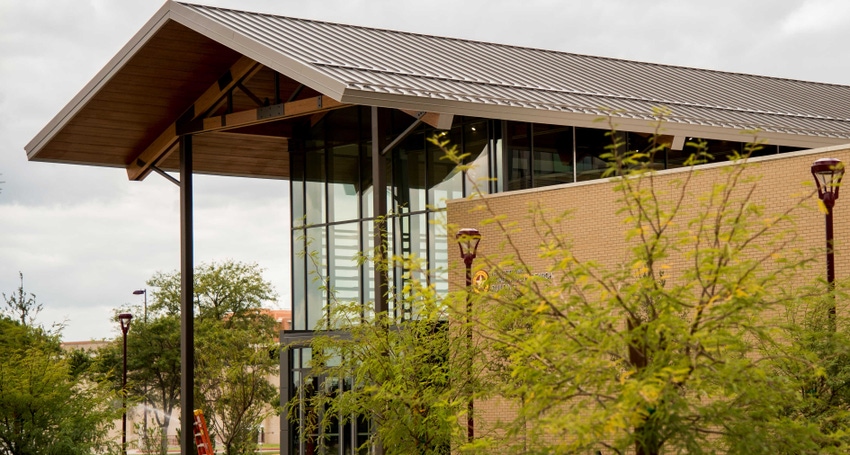West Texas A&M University updates progress on initiatives to advance food animal production in Texas Panhandle.
June 10, 2020

In updating several food animal production educational initiatives, West Texas A&M University (WT) announced that its new Center for Advancing Food Animal Production in the Panhandle (CAFAP) has been allocated $4 million for a two-year period by the 86th legislature and Texas Gov. Greg Abbott.
Of the total, $2 million was designated for WT’s Paul Engler College of Agriculture & Natural Sciences (PECANS), and an additional $2 million was set aside for the Texas A&M College of Veterinary Medicine’s Veterinary Education, Research & Outreach (VERO) program.
The major funding initiative also includes monies for seven new faculty members, 10 graduate student assistants and six support staff positions, the announcement said.
Texas A&M University System (TAMUS) chancellor John Sharp has committed more than $6 million to support the hiring of faculty, and TAMUS has committed more than $20 million from the Permanent University Fund to complete the construction of the VERO facilities that will support the center and the 2+2 veterinarian training program with the Texas A&M College of Veterinary Medicine.
CAFAP and VERO will be joined by the Texas Veterinary Medical Diagnostic Laboratory’s new $24 million building, which is currently under construction and almost completed, in WT’s growing Agricultural Sciences Complex in Canyon, Texas.
The state and TAMUS funding are in addition to more than $10 million in donations from the private sector, for a total public/private investment of nearly $120 million to date, WT said.
“The Panhandle and its beef production industry are vital to our state’s economy,” Sharp said. “Our investment in the panhandle reflects our commitment to taking care of the people who feed us.”
These investments all mark a significant partnership to benefit WT and the panhandle, WT president Dr. Walter Wendler said.
“State legislators, TAMUS leadership, Texas A&M University and donors recognize the power of partnerships in service to our region,” Wendler said.
“We have received the support of Texas Cattle Feeders Assn. (TCFA), Texas & Southwest Cattle Raisers Assn., Texas Association of Dairymen, Texas Pork Producers, Texas Veterinary Medical Assn. and High Plains Veterinary Medical Assn. and other area agriculture producer groups, commercial meat processing and fabrication companies,” Wendler said.
CAFAP enables students to specialize in animal health, animal care, animal nutrition and pre- and post-harvest food science/food safety.
“We want to prepare our graduates for a range of food animal industry careers, from live animal production to retail,” Paul Engler College of Agriculture & Natural Science dean Dr. Kevin Pond said. “We’ll also be training veterinary students to serve our panhandle and west Texas communities and the region’s livestock.”
The new WT Agricultural Sciences Complex, which opened in August 2018, provides offices, classrooms and laboratory space, including a state-of-the-art meat lab, large arena, pavilion and virtual teaching classroom, plus WT’s Nance Ranch, research feedlot and horse center.
The campus will be a model for the nation in addressing large-animal production issues, Pond said. CAFAP will become a complementary environment where education, research and outreach — from pre-birth to harvesting — occur at one site, providing a model that can be used across the state, he said.
“The funding recognizes that WT is a key component in a geographic area that includes the largest fed cattle production region in the world, fourth-largest milk-producing region in the nation and largest pork production area in Texas,” TCFA director of industry affairs Josh Winegarner said.
Since the state money was allocated, three new personnel have been hired for CAFAP: Dr. Loni Lucherk, animal science-meats; Nick Peterson, animal science instructor and meat lab manager, and Fil Polanco, feedyard manager. Applications are being taken for two additional tenure-track faculty in agricultural business and economics/risk management and animal science/genomics.
VERO officials also are in the process of staffing the 2+2 veterinarian training program with clinical veterinary professors, a research scientist, contract veterinarians, student workers and more. The 2+2 program will allow Texas A&M veterinary students to elect to spend their first two years on the WT campus for increased exposure to large-animal needs in rural communities.
You May Also Like


.png?width=300&auto=webp&quality=80&disable=upscale)
